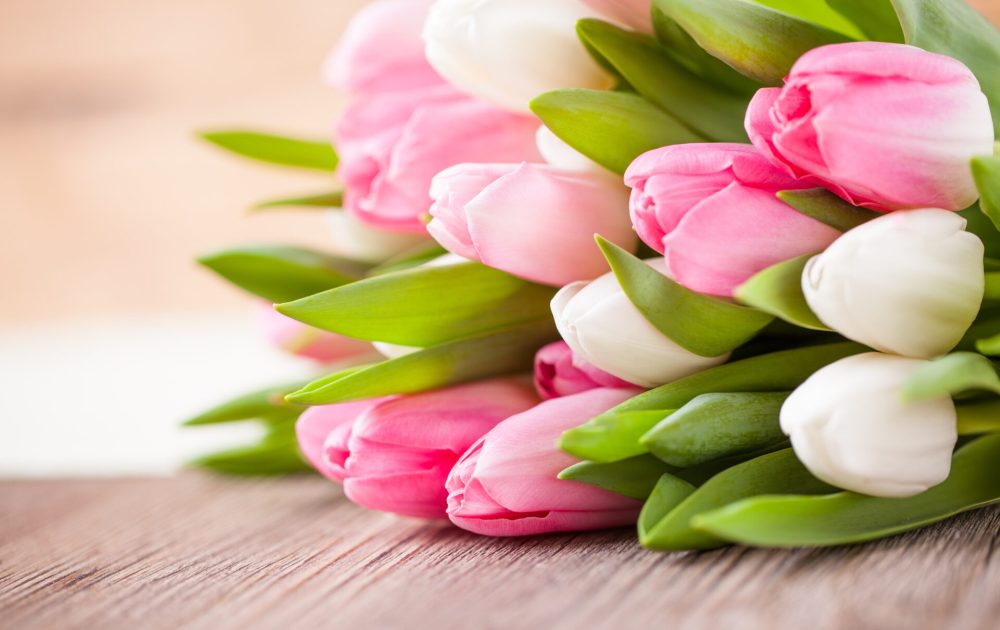Our test tells you which everyday chemicals you've recently come into contact with, and easy steps you can follow to reduce your exposure to them.
Avoid pesticides in your Valentine’s Day flowers

With Valentine’s Day approaching you may be thinking about buying floral gifts for your loved ones. Red roses are one of the most popular floral gifts for Valentine’s Day with an estimated 8 million sold every year, but what sort of chemicals are used in their production, and are there any health effects to consider?
Pesticides in flower production
There is no limit to the number of pesticides that can be sprayed on flowers, as they are not classed as a consumable product. This has led to many flowers being sprayed heavily throughout their growing and shipping processes. Flowers grown in Latin American countries and Africa rely heavily on pesticides to reduce the transfer of pests across borders. Flowers grown in Europe generally have fewer pesticides, for example Dutch flower growers used 20% fewer pesticides in 2020 than in 2016.
Research conducted in 2018 found ten different pesticides had been used on mixed bouquets, including harmful and banned pesticides. Seven times more pesticides are used to grow roses than to grow maize, in order to keep the flowers looking fresh and elongate their shelf life.
Pesticides are classed as Persistent Organic Pollutants (POPs) which are ‘forever chemicals’ that stay in the environment long after their first use. These are endocrine disrupting chemicals (EDCs) which can add to your body burden and may increase your risk of developing health conditions.
Choose seasonal, organically grown flowers
There are some easy ways to reduce the chances of pesticide exposure when gifting flowers to a loved one. Choosing flowers from a grower based in the UK may increase the likelihood of flowers that have been grown without using pesticides. Flowers from the Farm is a directory of UK based growers which promotes British grown flowers; it’s a great place to look for flowers grown locally where many adopt sustainable and organic flower farming methods.
You can grow your own organic seasonal flowers at home without using pesticides or weedkillers such as glyphosate. Search for growers who specialise in organic bulbs to help you get started. Your emissions will also be non-existent!
If you buy locally grown flowers ask the florist about any pesticides that may have been used in the growing process. Wear gloves and wash your hands when handling flowers if you’re not sure if they’ve been grown using pesticides.
Occupational exposure to pesticides
Florists handle cut flowers daily and therefore are known to have an increased risk of exposure via absorption through the skin, as residues remain on stems, petals, and foliage. Many florists do not wear gloves or protective clothing when handling flowers for long periods of time, and therefore might be increasing their risk of pesticides entering their body. Studies have found that this increased exposure to pesticides can lead to pesticide-related illnesses and even genetic damage for some florists and flower growers.
The environmental impact of cut flowers
The cut flower industry in the UK is worth more than £1.3bn. Around 90% of these flowers are imported, which impacts on emissions due to the transportation and refrigeration involved in making flowers available all year round. There is no legal requirement to include the country of origin on shop-bought flowers, so the environmental impact of imported flowers like roses is likely to be much greater than we realise.
Flowers are often wrapped in single-use plastic packaging and floral displays are often created using materials that end up in landfill, where they can release toxic gases into the environment.
Further reading: Pesticides and our health: a growing concern
The information on our website should not be used as an alternative to medical advice from your doctor or other professional healthcare provider. If you have any specific questions about any medical matter, you should consult your doctor or other professional healthcare provider. Lastinghealth.com is not responsible for the content of external websites. The inclusion of a link to a third-party website should not be understood as an endorsement.
Image credit: fotogestoeber